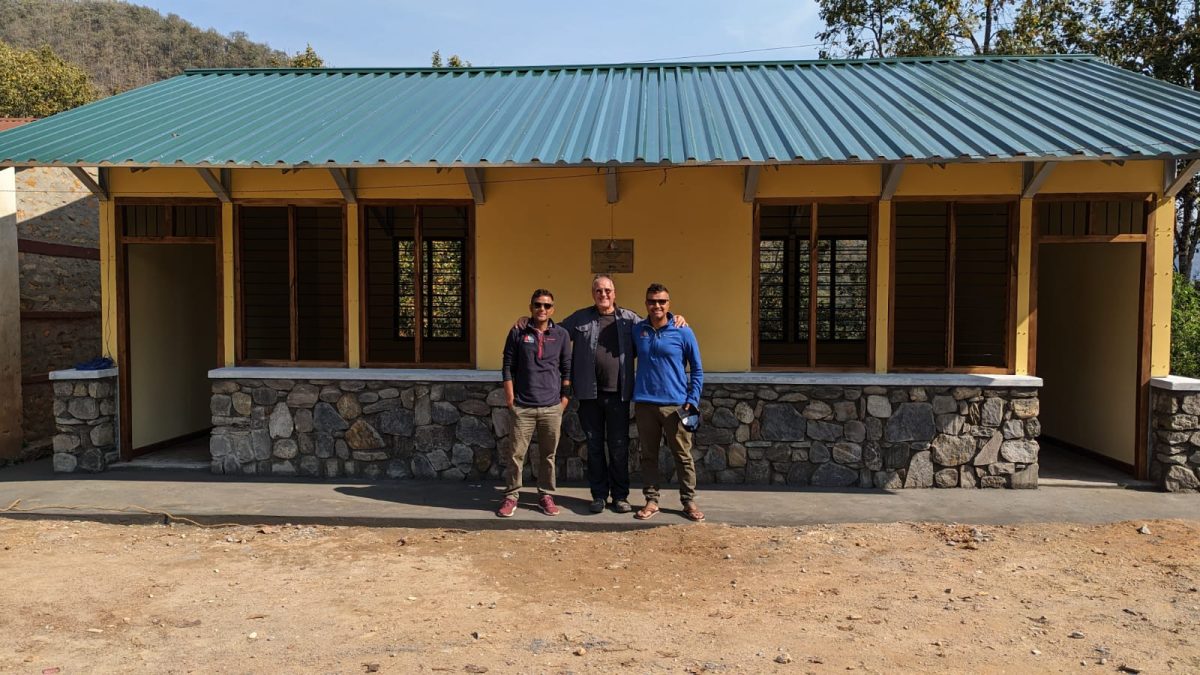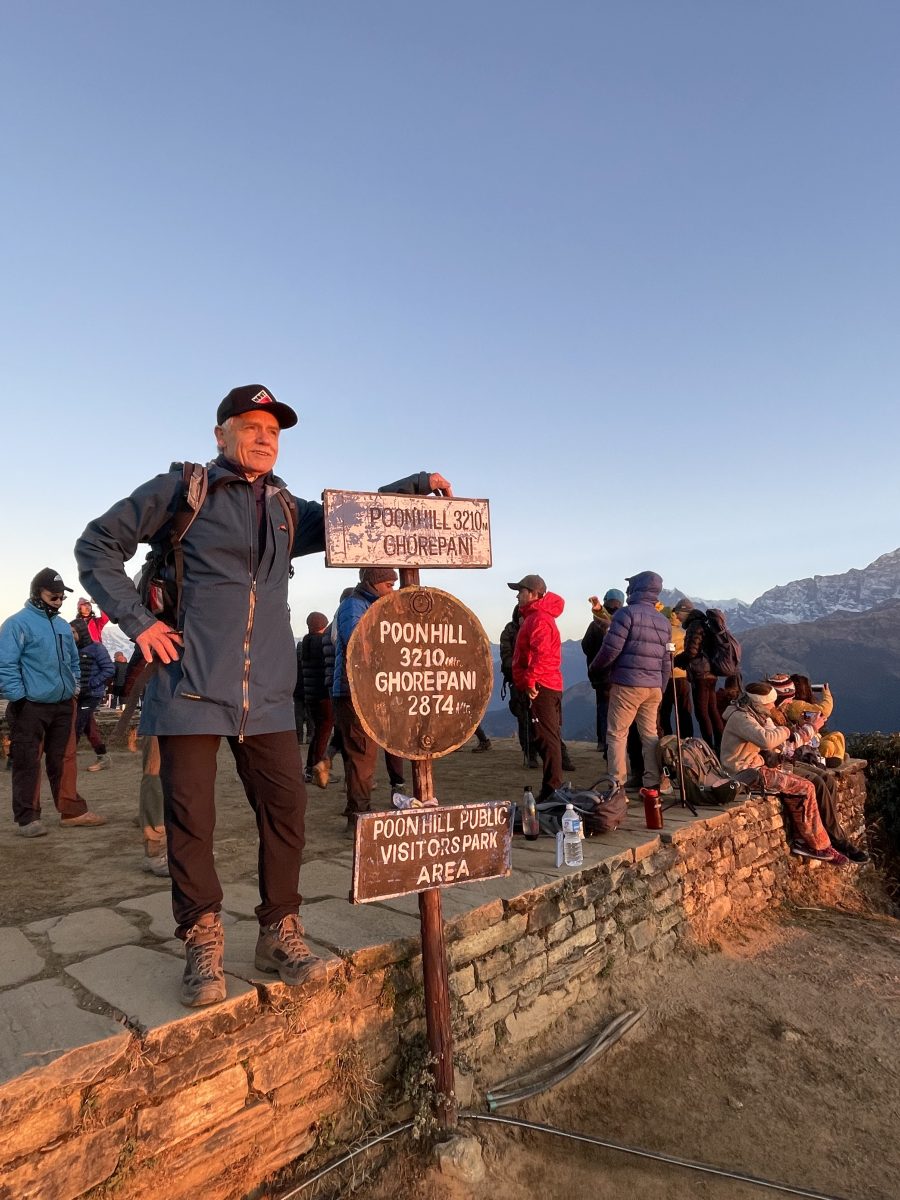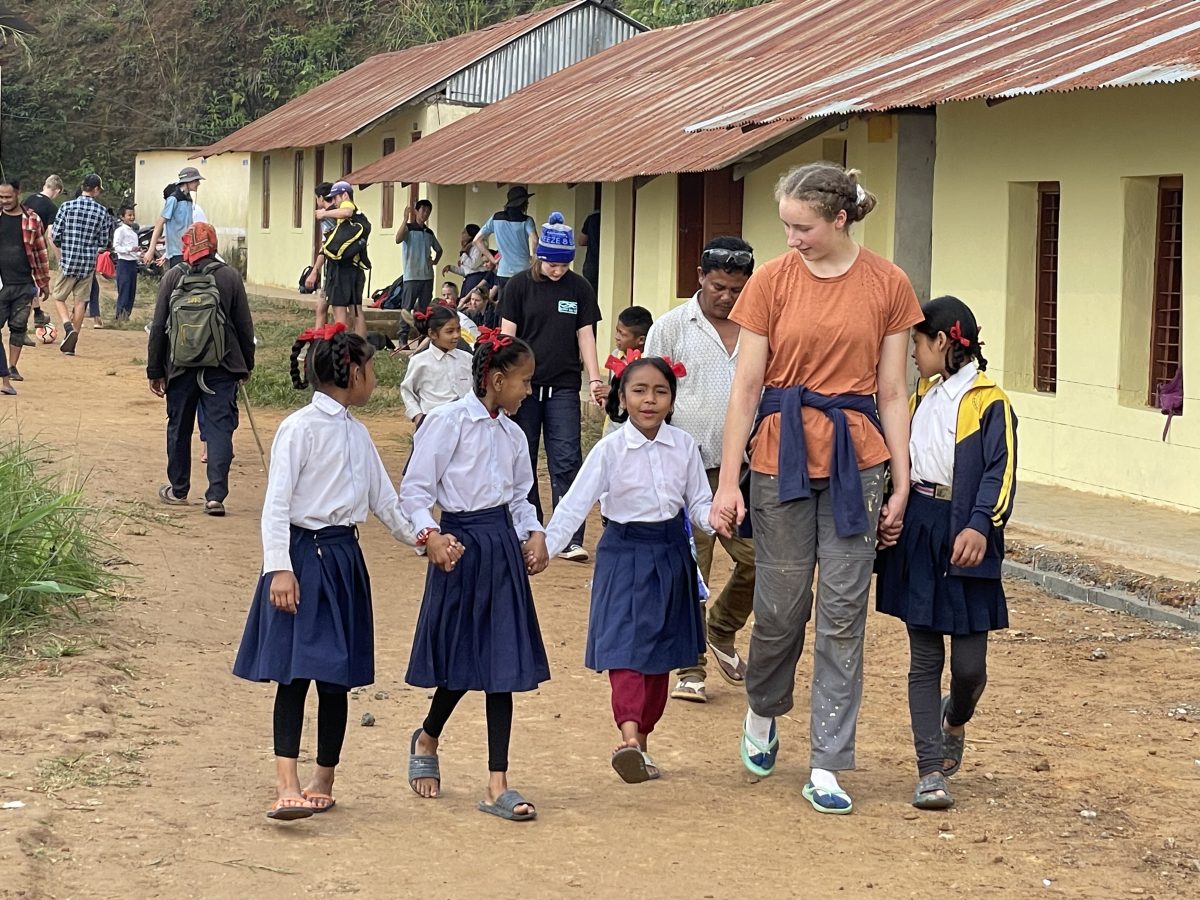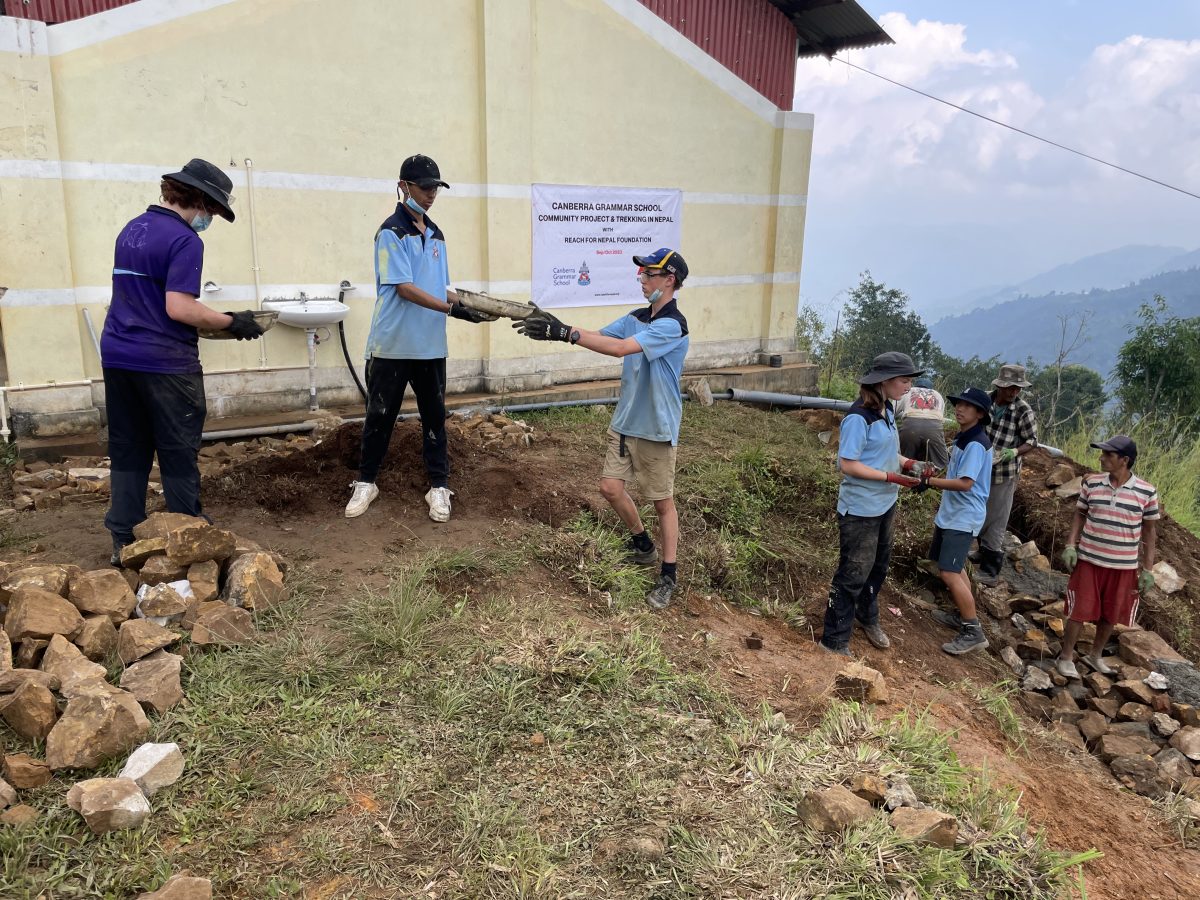
The first earthquake-resilient classroom built by REACH for Nepal with help from TTW (Shiva Thapa, David Francis, Lachhu Thapa). Photo: REACH for Nepal.
On 25 April 2015, a 7.8-magnitude earthquake struck Nepal northwest of the capital of Kathmandu, followed by a 7.3-magnitude quake northeast of the city in May.
Together with the aftershocks and landslides, almost 9000 people were killed and about 20,000 injured. Schools, hospitals and roads were ruined. In total, around 409,000 homes were destroyed, and a further 265,000 were damaged.
The shock waves were felt in Canberra too.
Lou Nulley, who had spent years in the public service helping to manage big projects like Medicare, was dining with his friend Lachhu Thapa in Lachhu’s restaurant, The Hungry Buddha, in Belconnen, thinking about how the hordes of Canberrans who wanted to help could.
“We thought maybe we do some rebuilding projects and help with education and health care,” Lou recalls.
Lou loves Nepal. He’s climbed the 5364 metres to the base camp of Mount Everest with his son, and only a few months before the earthquakes, participated in a yoga trek through Nepal with Lachhu.
Together, they developed the ‘REACH for Nepal Foundation’, standing for ‘Rebuild, Educate, Assist Children and Communities, giving Hope for the poor’.
The foundation has accreditation with the Australian Council for International Development (ACFID), which manages a lot of foreign aid programs and was officially recognised by the Nepalese ambassador in 2018.

Lou Nulley at the summit of Poon Hill in Nepal. Photo: REACH for Nepal.
The aim is to “improve lives of Nepalese people in remote parts of western Nepal, the Gandaki Province, through projects that enable villages to become more self-sustaining and provide children opportunities for quality education and good health”.
This includes building and rebuilding schools and providing clean drinking water facilities, shelter and other supplies.
Much of the work is done in partnership with educational institutions like the Canberra Grammar School and, before COVID, the University of Canberra and Marist College.
Students are sponsored to participate in annual 16-day treks, where they’ll spend some time sightseeing around Kathmandu and rural Nepal and three to four days in a village helping to construct the projects, as instructed by the local REACH for Nepal volunteers.
“We have an independent group of people who prioritise the projects that need to be done, so it’s not us that determines what needs to be done, it’s the locals,” Lou says.
The reasons are two-fold. Not only do the villagers benefit, but the kids do, too.
“The insights these students gain is extraordinary, as a result of being immersed in a culture where they don’t have anything,” Lou explains.
“There’s a really strong connection, particularly with the children. I once had a Year 10 girl who said she was really going to miss her Nepalese friend who had been holding her hand and following her around everywhere the whole time. And kids tell me stories about how three weekends ago, they were mad at their parents because they couldn’t go out on a Saturday night, but here they are, having a ball, dancing around a fire in the middle of the Himalayas. It gives them a sense of purpose. It’s very rewarding.”

Canberra Grammar School student walking Nepalese girls to the site of their new school in Banethok. Photo: REACH for Nepal.
As of this year, Cox Architecture and Canberra engineering firm TTW have come on board to help design a new earthquake-resilient health clinic in one of the remote villages, and they’re working to raise $90,000 to make it happen.
“They’re also using all the latest 3D-imaging technology to actually give us a view of what it’s going to look like on the site,” Lou says.
“They want it to be practical and fit in the environment and not just be a one-off thing, but something that can be replicated in other villages.”
The clinic will accommodate four wards, with adjustable rooms and an area off the back, which can be enclosed if more space is needed to address a dire need.

Canberra Grammar School students are helping to lay the groundwork for a new water tank in Banethok. Photo: REACH for Nepal.
“Most of Nepal’s healthcare resources are located in or around Kathmandu, and this leads to other areas of Nepal being neglected. More than 90 per cent of Nepalis receive their health services at the community level, which means if you haven’t got it there, you don’t get it.”
Lou hopes to secure more commercial sponsorships with companies willing to donate $250,000 per year towards more of these projects.
“That would also mean we could upskill the locals in Nepal to deliver these earthquake-resilient buildings, which is a skill in itself. They’re premanufactured in India to our specifications and require precision to build. They’re like a big Meccano set, to be honest.”
The REACH for Nepal Foundation is holding a fundraising gala dinner at the Hellenic Club on Saturday, 16 March. Book tickets online. For more information, or to donate, visit the REACH for Nepal Foundation website.













